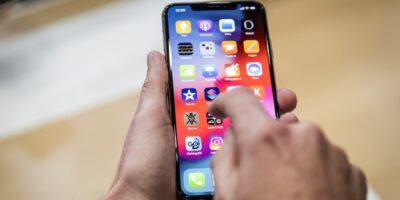When most people think of technology – me and you included – the first thing that pops to mind is likely smartphones, computers, tablets, vehicles, and other physical, hard, real-world objects that people can reach out and touch.
However, technology also includes ways of doing things, like processes, and non-physical objects, networks, and ideas, including the Internet, or the many operating systems that effectively form the language that smartphones and the World Wide Web operate on.
What is the most popular smartphone brand on planet Earth as of right now, on Friday, April 6, 2018? Apple. It seems like everyone and their parents have an Apple iPhone nowadays.
Google’s tried to enter the world of smartphones and other physical technological devices, though they haven’t succeeded as well as Apple, Huawei, or even Blackberry.
The one thing that people connect success and Google by is their non-physical mastery of technology – let’s take Google.com, the legendary, world-class search engine that dominates the world of searches.
On any given day, Google will process a few billion requests. As a matter of fact, Google’s total number of searches across any year since 2016 has reached the astounding sum of two trillion – in both 2016 and 2017, and, so far, is likely to reach a higher grand total than ever before in 2018!
Google also is known for its popular Android mobile phone operating system, which is used by countless other smartphone researchers, developers, and competitors, like the ultra-popular brands of Huawei and Samsung, among countless others. Speaking of smartphones, Google is also known for its line of Pixel mobile devices – the Pixel and Pixel 2, the latter of which is the most recent installment in the mobile phone line.
It’s also known that Google doesn’t always come forward with its knowledge, just like how it hasn’t made official how many searches it handles on a daily or yearly basis since sometime in 2016, and about future developments in the world of smartphones, for example.
However, what’s also true is that researchers found mention of a “Pixel 3” in the expansive source code somewhere within the Android Open Source Project’s official website, by which software and application developers around the world toy with and contribute potential improvements to the operating system.
This time it seems as if the open-sourced project has resulted in a premature announcement of Google’s Pixel 3. Good news for fans of the Pixel line of smartphones.


